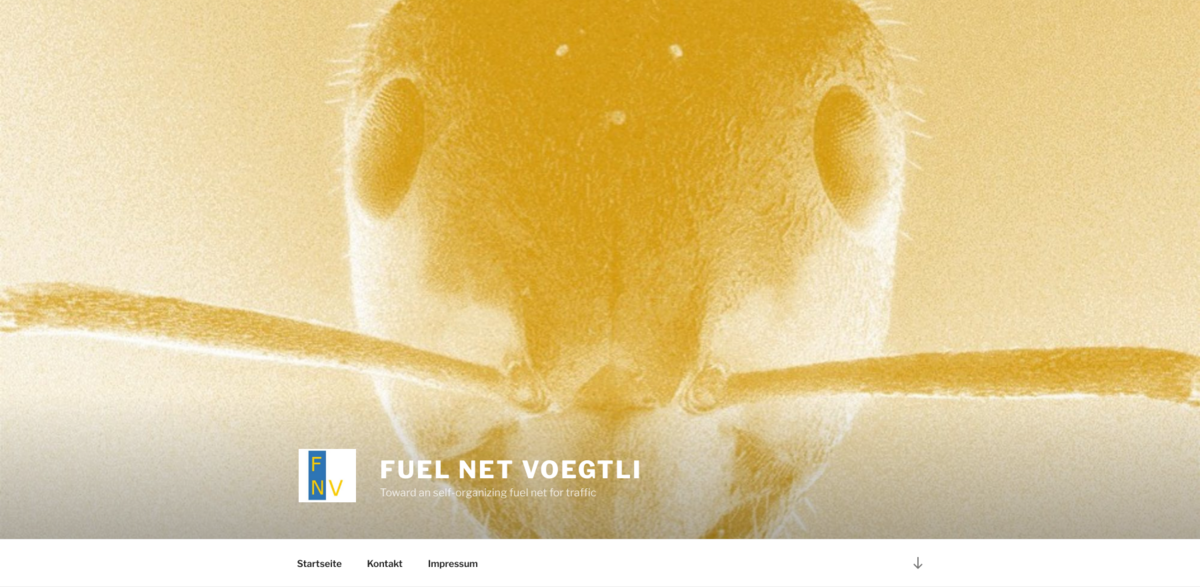What is Fuel Net Voegtli?
Fuel Net Voegtli is all about creating a self-organizing fuel network for traffic. Imagine replacing expensive, bulky infrastructure with the smart logic of insects combined with cutting-edge technologies that respond to local needs. The idea is simple yet powerful: decentralized problems just can’t be solved with centralized solutions. This project taps into the genius of nature and technology to build a fuel system that organizes itself, adapting to the environment and users dynamically.
Main Benefits of Fuel Net Voegtli
Here’s what makes this project stand out:
- Founded by Christian Voegtli, whose background spans theoretical physics, biology, environmental work, and risk management.
- Focuses on creating a market owned by prosumers—those who both produce and consume energy—optimizing the entire system.
- Uses decentralized approaches to tackle fuel distribution challenges in environments with scarce resources.
- First attempt to solve the distributed fuel problem dates back to 2007, showing long-term commitment and experience.
- Potential to influence urban development with architectures adapted for local energy and fuel management.
The Philosophy Behind the Project
At its core, Fuel Net Voegtli draws inspiration from nature—specifically, the way insects organize themselves without a central command. This biological logic is combined with smart technologies to create a fuel network that’s responsive and efficient. The founder’s unique mix of theoretical physics and biology knowledge fuels this innovative approach, making it more than just a tech project—it’s a new way of thinking about energy distribution.
How the Market Model Works
The project envisions a market owned by its prosumers, meaning those who both produce and consume energy. This market isn’t just a trading platform; it’s a dynamic system that optimizes fuel distribution based on local supply and demand. By decentralizing control, it avoids the pitfalls of traditional centralized systems, which often struggle with inefficiencies and bottlenecks. This approach could revolutionize how energy and fuel are managed in distributed environments.
Urban Development and Energy Management
Fuel Net Voegtli’s approach isn’t limited to fuel alone. It also offers a blueprint for developing cities with architectures tailored to local energy management. Imagine neighborhoods designed to handle their own energy and fuel needs efficiently, reducing waste and improving sustainability. This vision aligns with the growing trend toward smart cities and localized resource management, making urban living more adaptive and resilient.
Project Impact on Sustainable Development Goals (SDGs)
- SDG 7: Affordable and Clean Energy – promoting decentralized, efficient energy solutions.
- SDG 9: Industry, Innovation, and Infrastructure – fostering innovative infrastructure based on natural and technological synergy.
- SDG 11: Sustainable Cities and Communities – supporting urban development with local energy management.
- SDG 12: Responsible Consumption and Production – optimizing resource use through prosumer markets.
- SDG 13: Climate Action – reducing reliance on centralized, carbon-heavy fuel distribution systems.
Looking Ahead: The Future of Fuel Networks
The journey started back in 2007, and the vision keeps evolving. Fuel Net Voegtli is more than a project; it’s a movement toward smarter, more sustainable fuel systems that learn from nature and technology alike. As cities grow and energy demands shift, this decentralized, self-organizing approach could become a cornerstone of future energy strategies. It’s about creating systems that work with local realities, not against them—making fuel networks more resilient, efficient, and ready for tomorrow’s challenges.


















